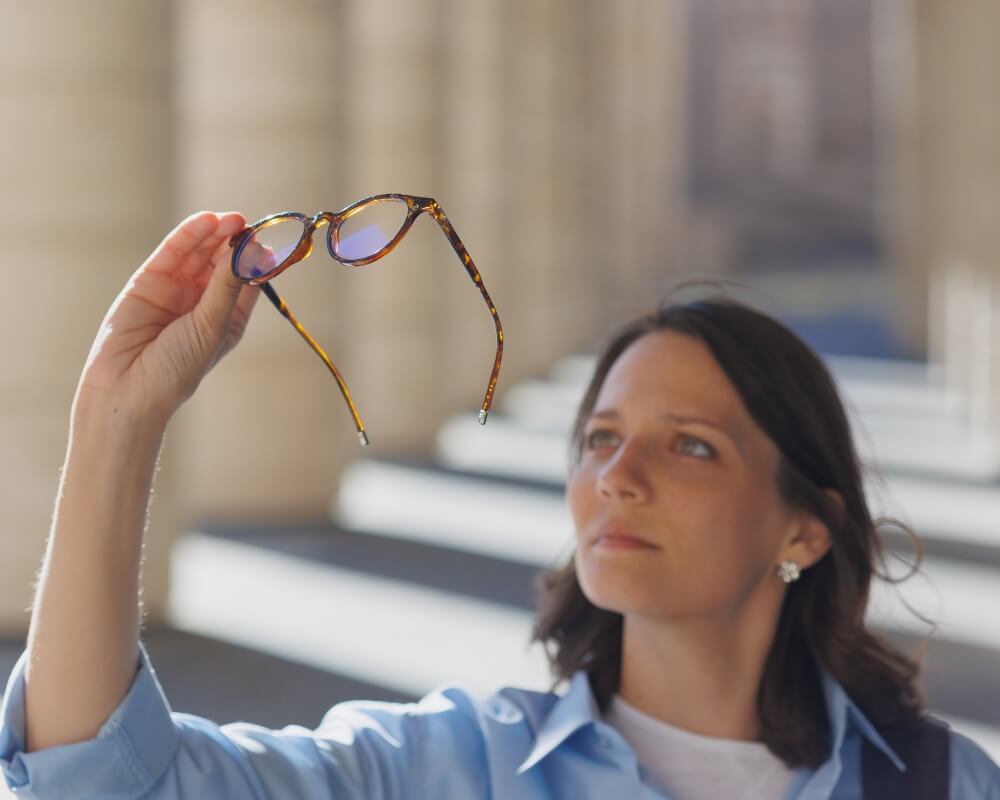Retinal Detachment
Tombs & Allen Opticians Ltd are eye-care professionals with many years of experience and a passionate aim to provide the best for their patients.
Retinal Detachment
The retina is a fine sheet of nerve tissue lining the inside of your eye. Light entering the eye is focused on the retina by the lens. The retina produces a picture which is sent along the optic nerve to the brain where it is interpreted. The retina is similar to the film in your camera which produces pictures.
The retina is usually attached to the inner surface of the eye. If there is a hole or tear in the retina then fluid can get underneath it. This weakens the attachment so that the retina becomes detached, like wallpaper peeling of a damp wall.
Detachment of the retina is more frequent in middle aged, short sighted people. However, it is quite uncommon and only about one person in ten thousand is affected. It is rare in young adults.
The most common symptom is a shadow spreading across the vision in one eye. You may also experience bright flashes of light and/ or showers of dark spots called floaters. These symptoms are never painful.
Many people experience flashes or floaters and these are not necessarily a cause for alarm. However, if they are getting severe and seem to be getting worse and you are losing vision, you should then seek medical advice. Prompt treatment often minimises the damage to your eye.
If you get help early, it may be necessary to have a laser or freezing treatment. This is usually performed under local anaesthetic. Often, however, an operation may be needed to repair the hole in the retina. This is usually done under a general anaesthetic and can be repaired in a single operation in 90% of cases although you may need a day or two in hospital.
Frequently asked questions about Retinal detachments in the eyes:-
Can retinal detachment be prevented?
Possibly! If your family has a history of retinal detachment and your Optometrist has noticed a weakness in your retina then preventative laser or freezing treatment may be needed. In most cases however, it is not possible to take preventative action.
Am I likely to get a retinal detachment in the other eye?
If you have had a retinal detachment in one eye, you are at increased risk of developing one in the other eye but there is only about a one in ten chance of this happening.
Could a recent bump to the head cause a retinal detachment?
It is possible a blow to the head, or a recent traumatic incident, such as a bungee jump could result in a retinal detachment. Usually, straining your eyes, bending or heavy lifting is unlikely to result in a retinal detachment.
If in doubt, consult us as soon as possible for further advice, early intervention is essential in the case of retinal detachment.
Contact us now on 023 9258 3751 to arrange your next appointment!

Book your consultation now!
Call us or Book online. If you are unable to find a suitable appointment, please call us and one of our friendly team members will be able to assist you.
EYE CARE
We have a long history of providing excellent care for the local community. We pride ourselves on providing individual eye care delivered by the best people using advanced equipment. We have a wide scope of products available to us and provide expert advice about the optimal optical solutions.









